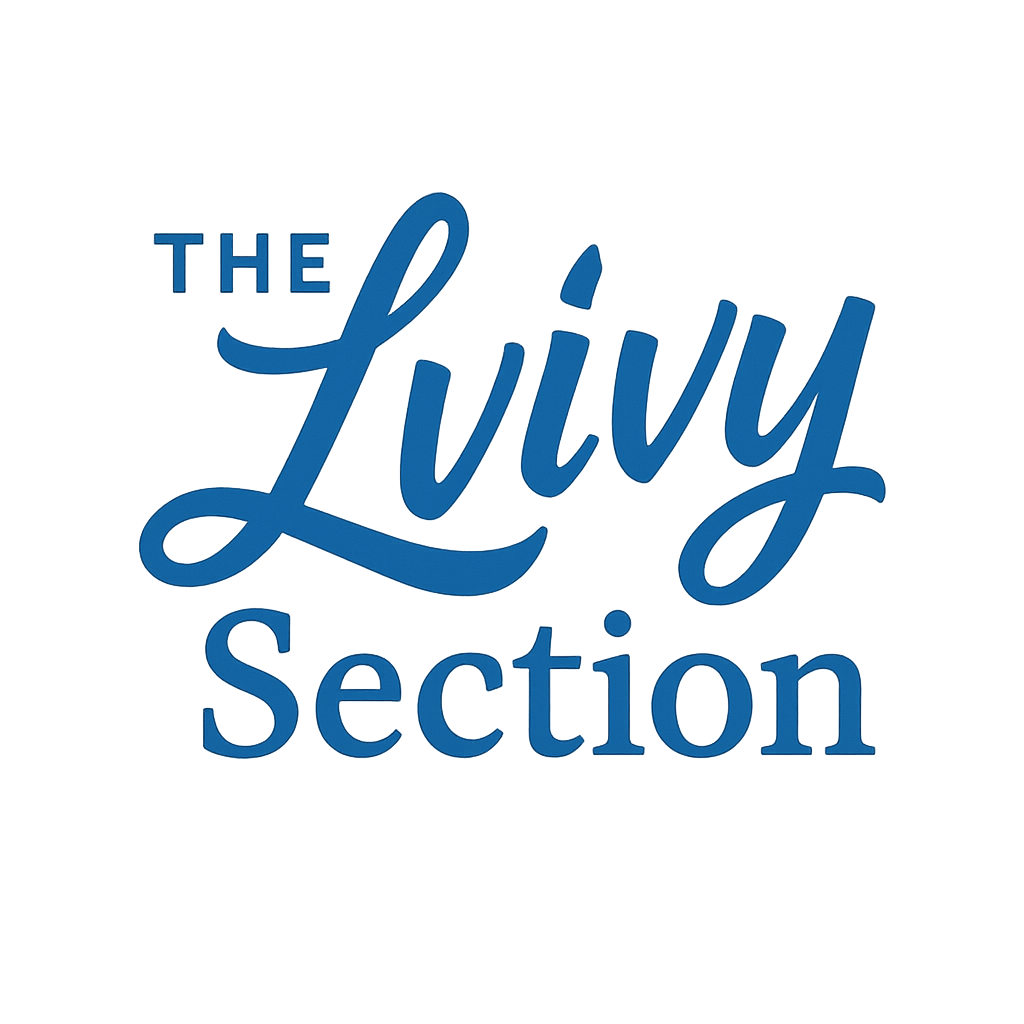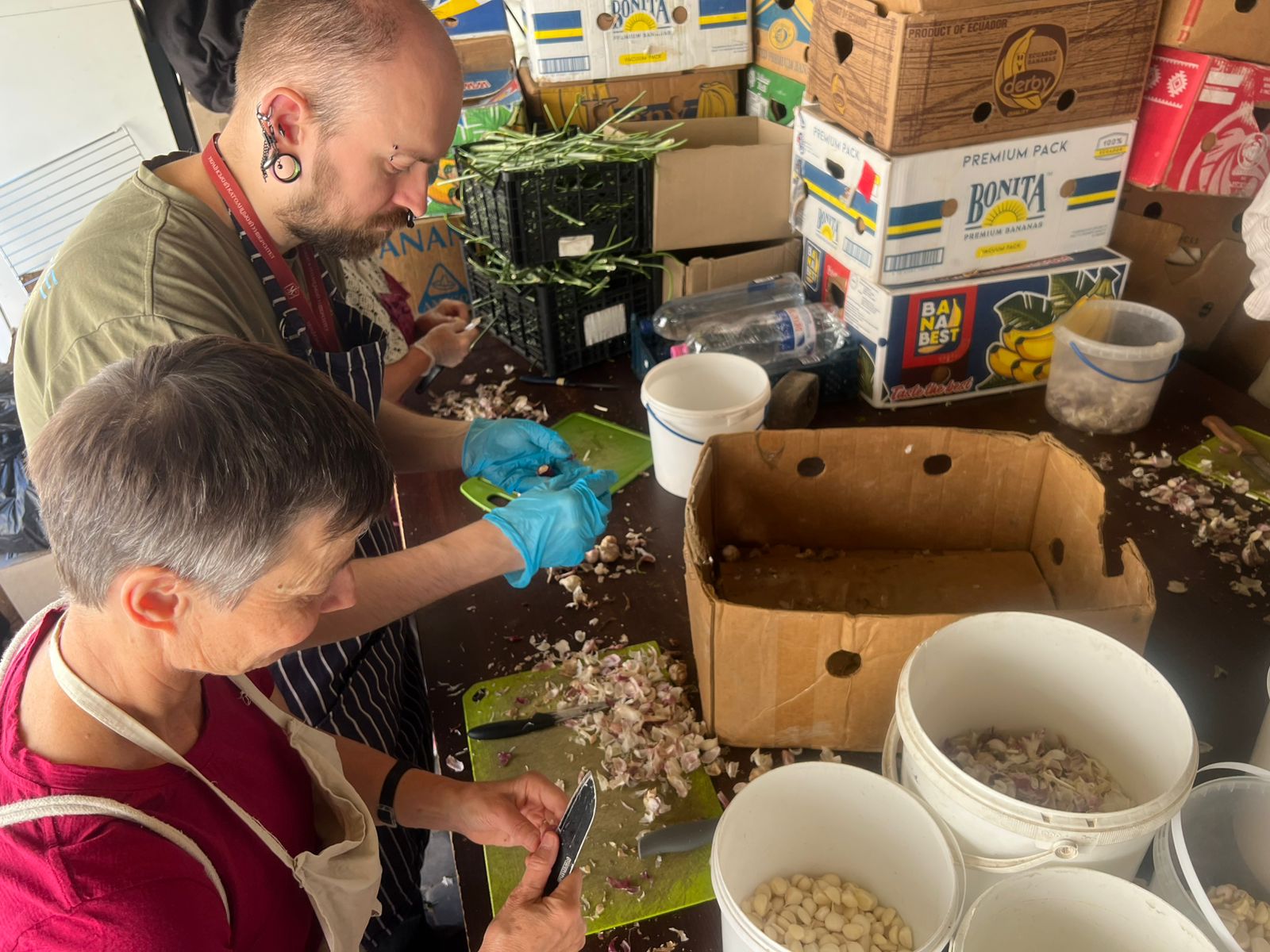Besides learning the Ukrainian language and culture, we also had a few opportunities to volunteer. As we volunteer, we learn more about the Ukrainian character.
Helping in the food kitchen
There’s a food kitchen in Lviv run by Ukrainian and international volunteers. I didn’t get all the details about the organisations involved, but their mission was clear — to prepare easy-to-prepare edible Ukrainian rations for soldiers.
Some foreigners only spoke English, but came here to do some good. Some foreigners interact in Ukrainian very comfortably, repeatedly asking for words they don’t know, but still constructing understandable sentences I wouldn’t be able to distinguish from proper Ukrainian. Moreover, old grandmas and young guys are singing traditional songs together with ease. Very inspiring!
We (myself, another course participant and a course organiser) got a tour through the facility, did some garlic peeling for little over an hour (or perhaps two) and had some traditional Ukrainian lunch with the other volunteers.
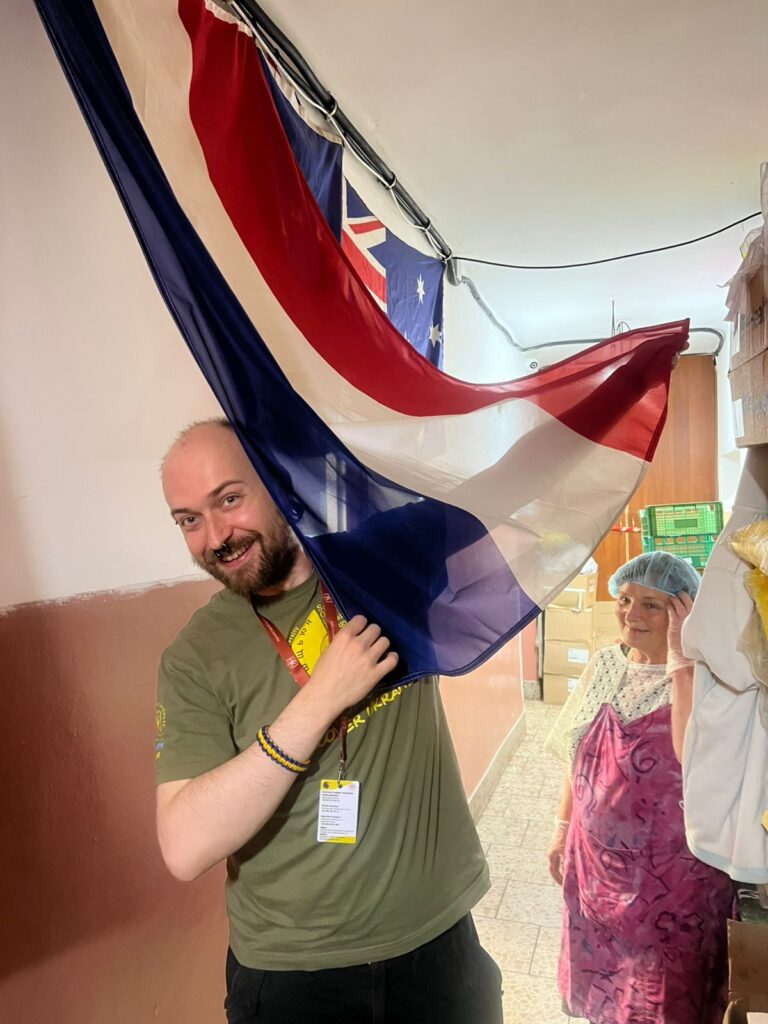
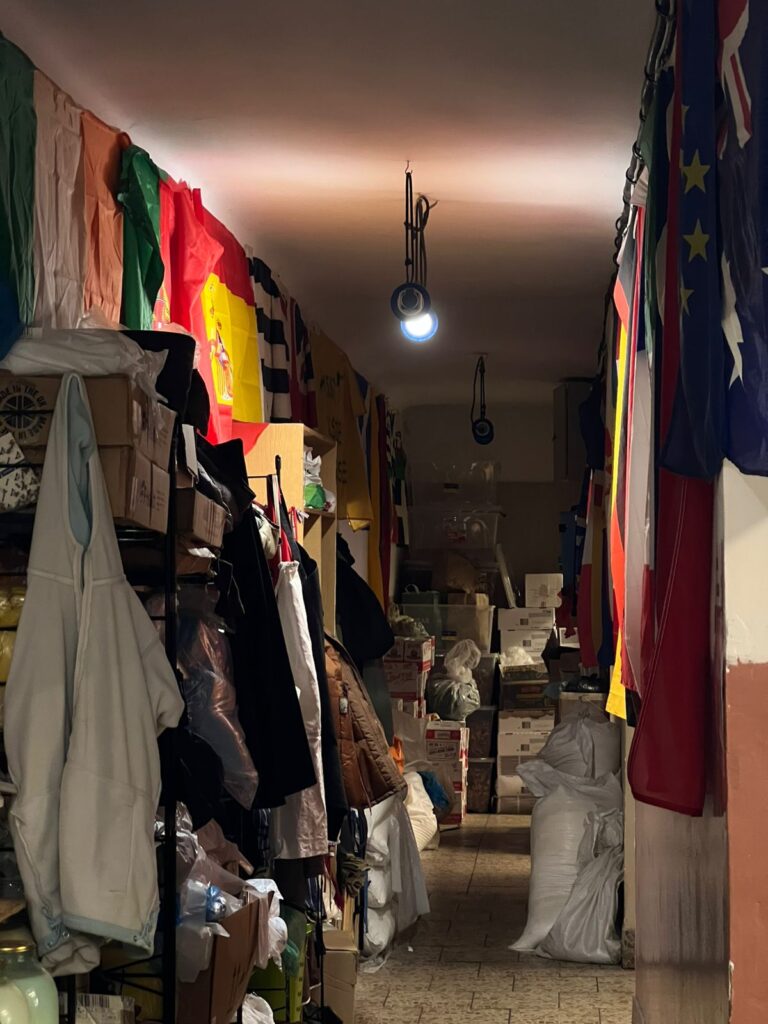
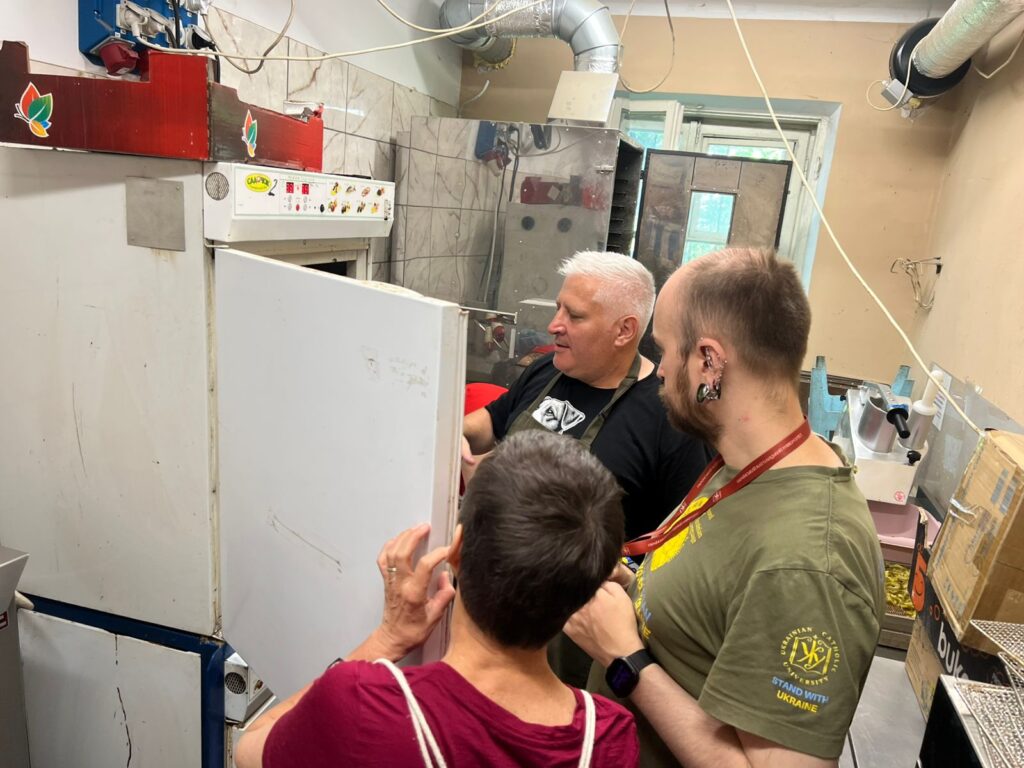
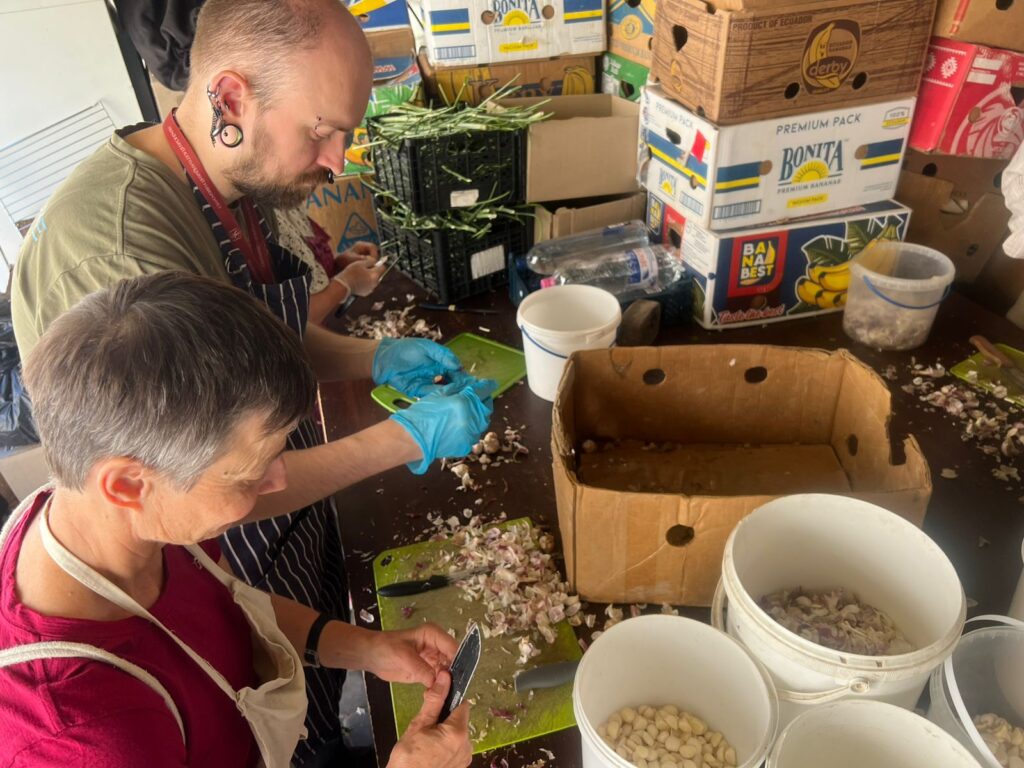
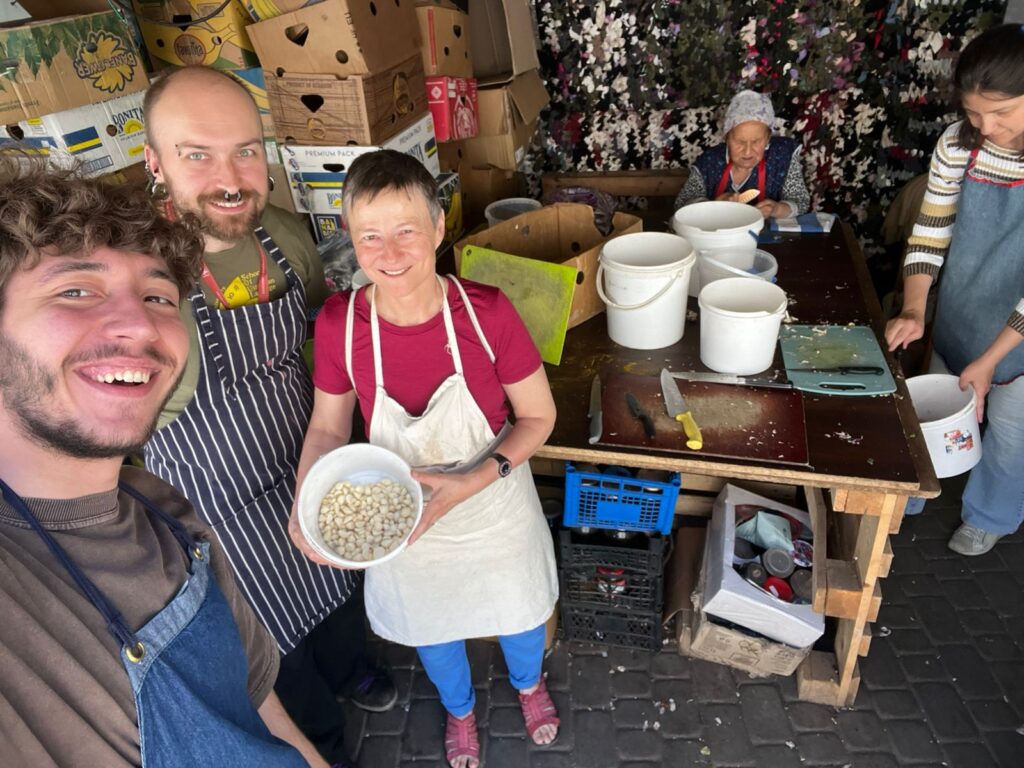
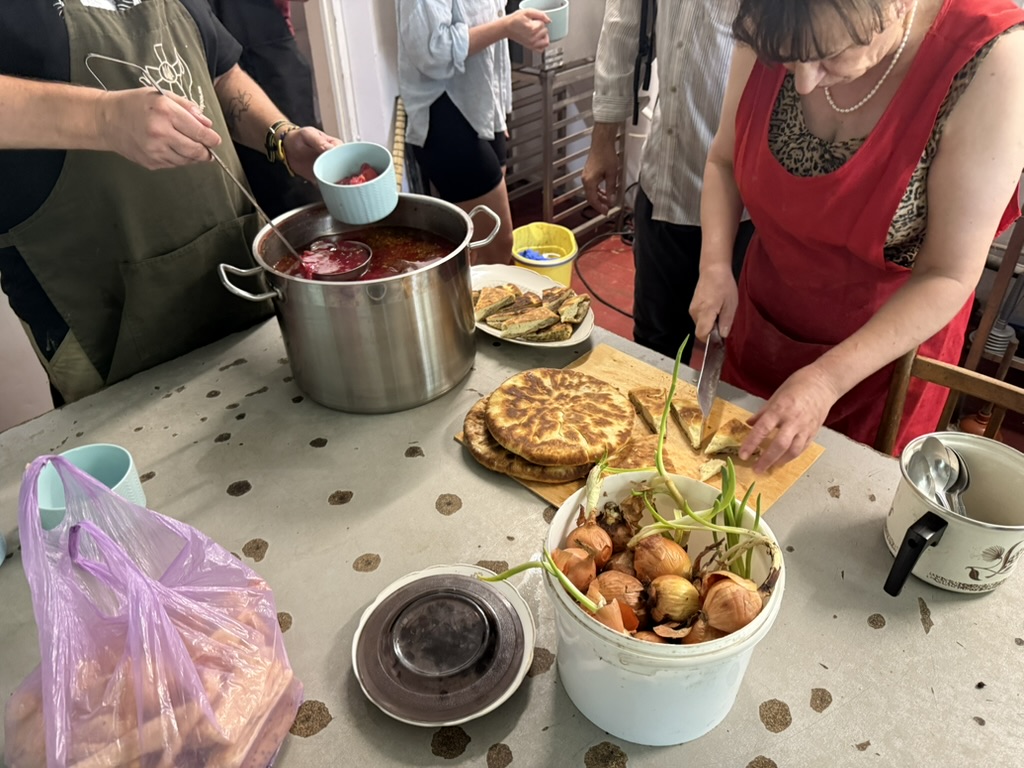
Intermezzo: post-volunteering city exploration
After this (for me) one time kitchen volunteering session, we went to explore the city a bit. We visited an Armenian church, which has a different form of Christianity. Interestingly, their cross is often depicted surrounded by the ‘tree of life’. I didn’t make pictures of the inside, given it seemed to be frowned upon. Afterwards, Miriam and I visited a chocolate shop in the city — it has five floors. We only browsed through the shop floor.
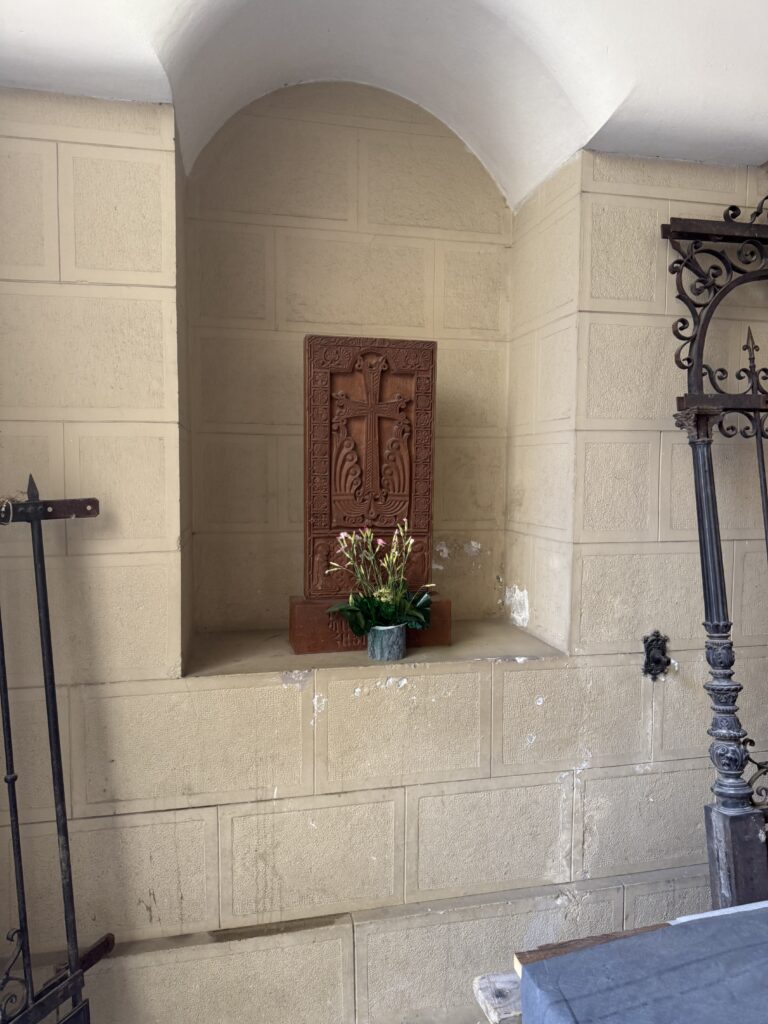
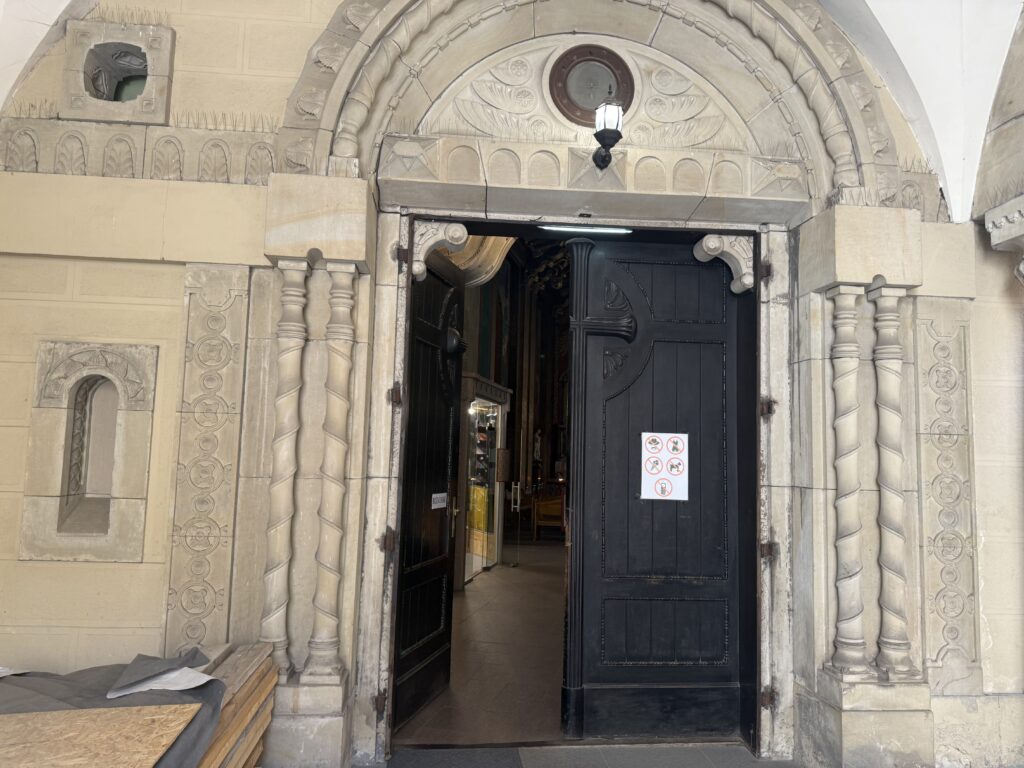
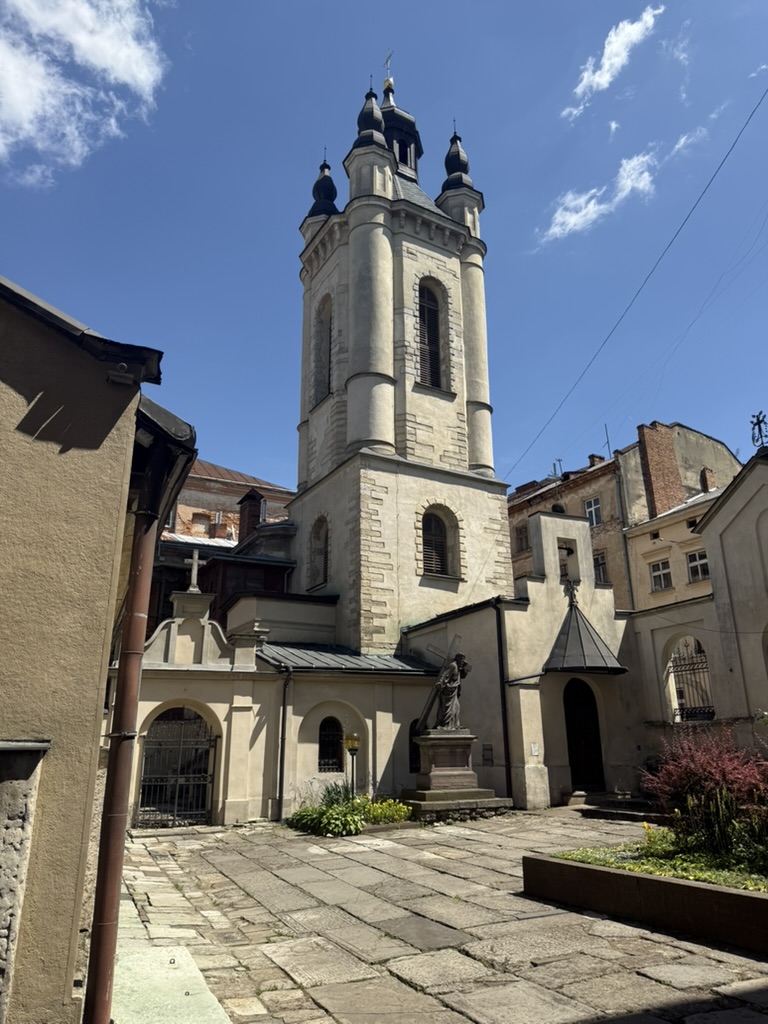
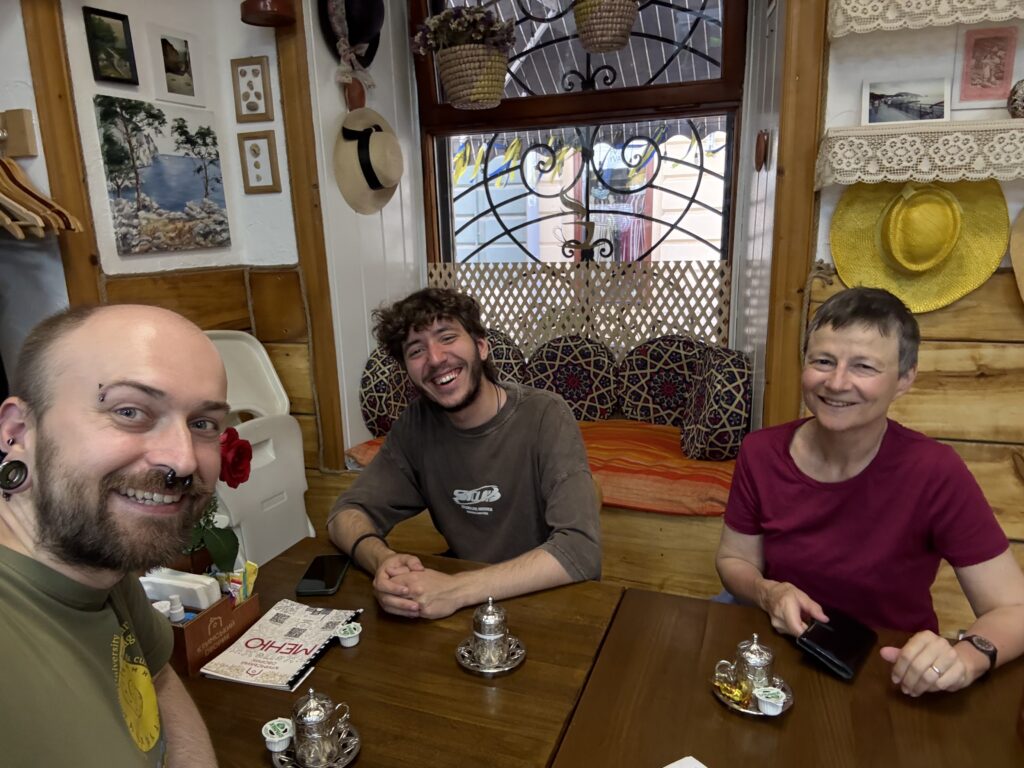
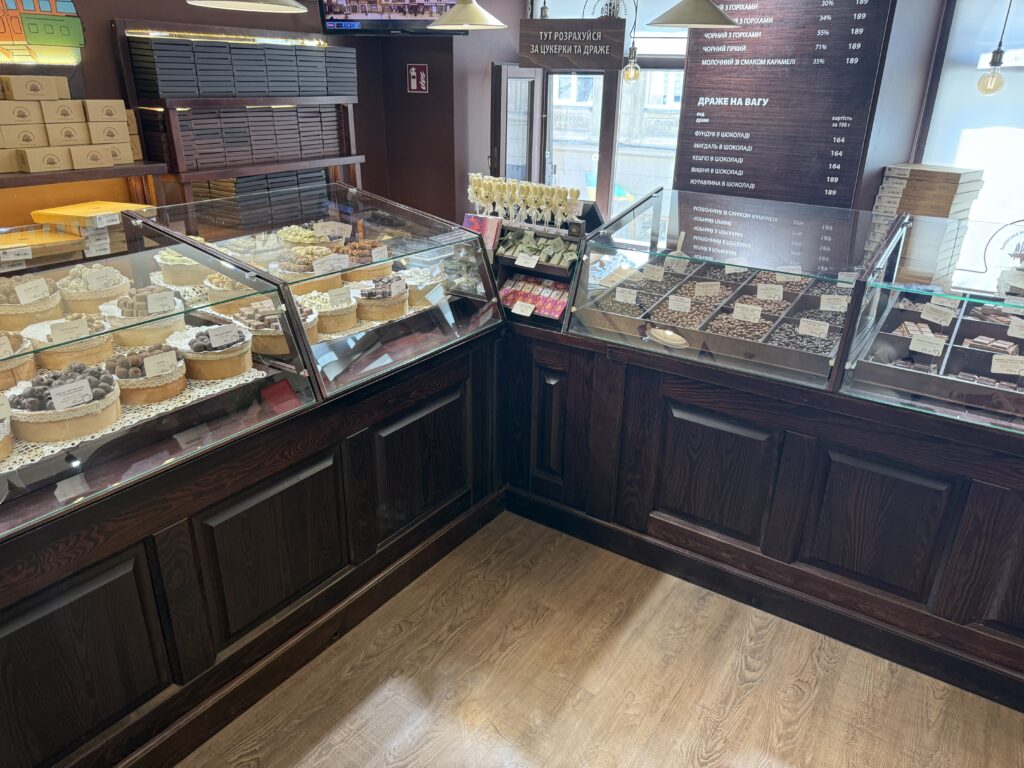
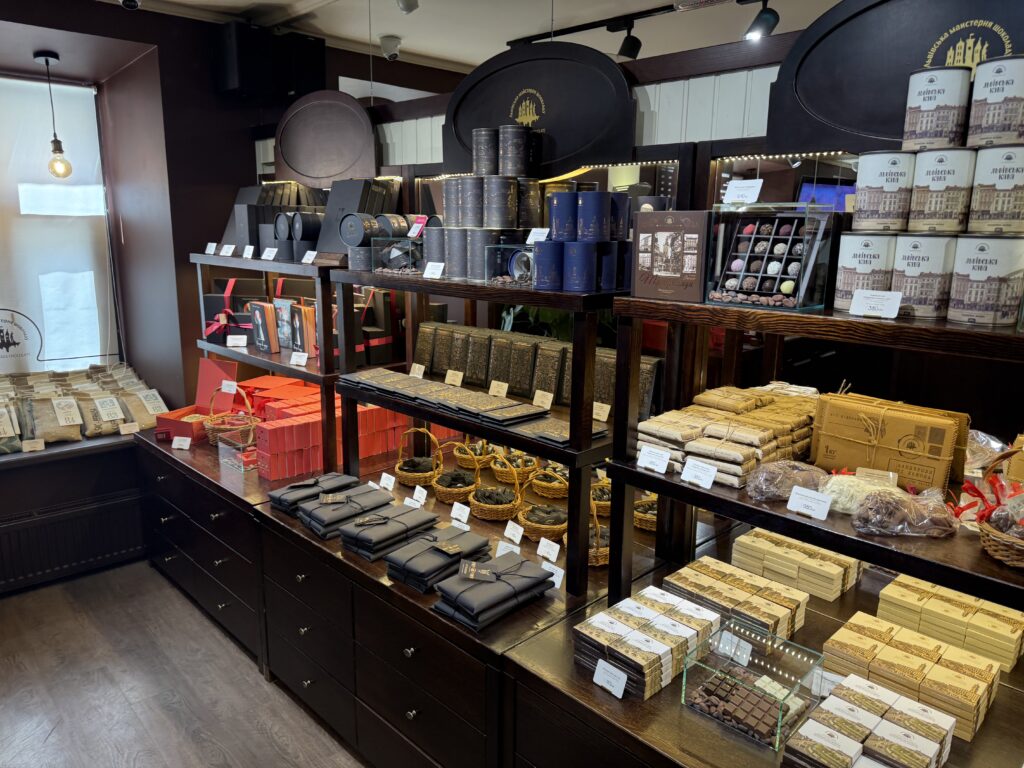
Speaking English with cadets

Another volunteering project was helping some cadets from the Odesa Military Academy, who were here to learn and practise English in a short summer school program.
I got to chat with a nice bunch of cadets. I’ve been with (some) of them to grab fast-food in the city centre, eat a pizza in their dormitory and have a walk in the park. I got an airborne patch from them, a group photo and they signed a Ukrainian flag with personal messages.
The cadets were supposed to choose a different ‘volunteer’ every time. In practice, the same few guys quickly choose me every time. Clearly, I must be the coolest, the most charismatic, the leanest, the meanest volunteer. Either that, or I was the most naïve foreigner and easiest target for good-natured teasing.
The boys were (by their own admission) quite the testosterone adrenaline junkies — which I would concur with. They taught me Ukrainian swear words, and my Ukrainian pronunciation made them laugh out loud. Of course, they made me say many unholy (unprintable, unrepeatable) things in Ukrainian that I didn’t understand.
We had many discussions on the current war, soviets, nazis, even LGBT etc. I’d say they were actually quite open-minded but there’s also a practical cynicism to their world views that I wasn’t used to. For example, some brag they’ve started some street fights, and then also they call Western Europe ‘more civilised’ (with a degree of admiration) for not having this violence. My conclusion would be “don’t start street fights”, but that’s from a mindset of wanting to do what’s best. However, cadets, and military personnel in general, are competitive and care a lot about being the best (in whatever they do). Fighting might seem uncivilised, but it presents an opportunity to ‘be the best’. These value differences felt a bit uneasy at times, but it shows the need for a (robust) society — to bring people with different values together to pursue shared interests.
Unfortunately, I can’t post my photos or say too much for reasons of military security. The University wrote an article about the program, though, so I’m freely sharing their article (translation to English here) — with more photos.
In conclusion
I’m happy for the memories, insights and friendships the volunteering opportunities provided. Taking part in on-going volunteering organisations, even for a moment, taught me what Ukrainians prioritise. Food kitchens all the way in Lviv, preparing rations with fresh ingredients for soldiers far away — that’s camaraderie on a societal level. Schools wanting cadets to learn English — that’s dedication to align with the West, and the world at large.
If anything, it confirms Ukraine is a modern open society very much like Western society. And perhaps, it shows that the West can learn a thing or two from Ukraine — about perseverance, dedication, and doing the best you can in impossible circumstances.
